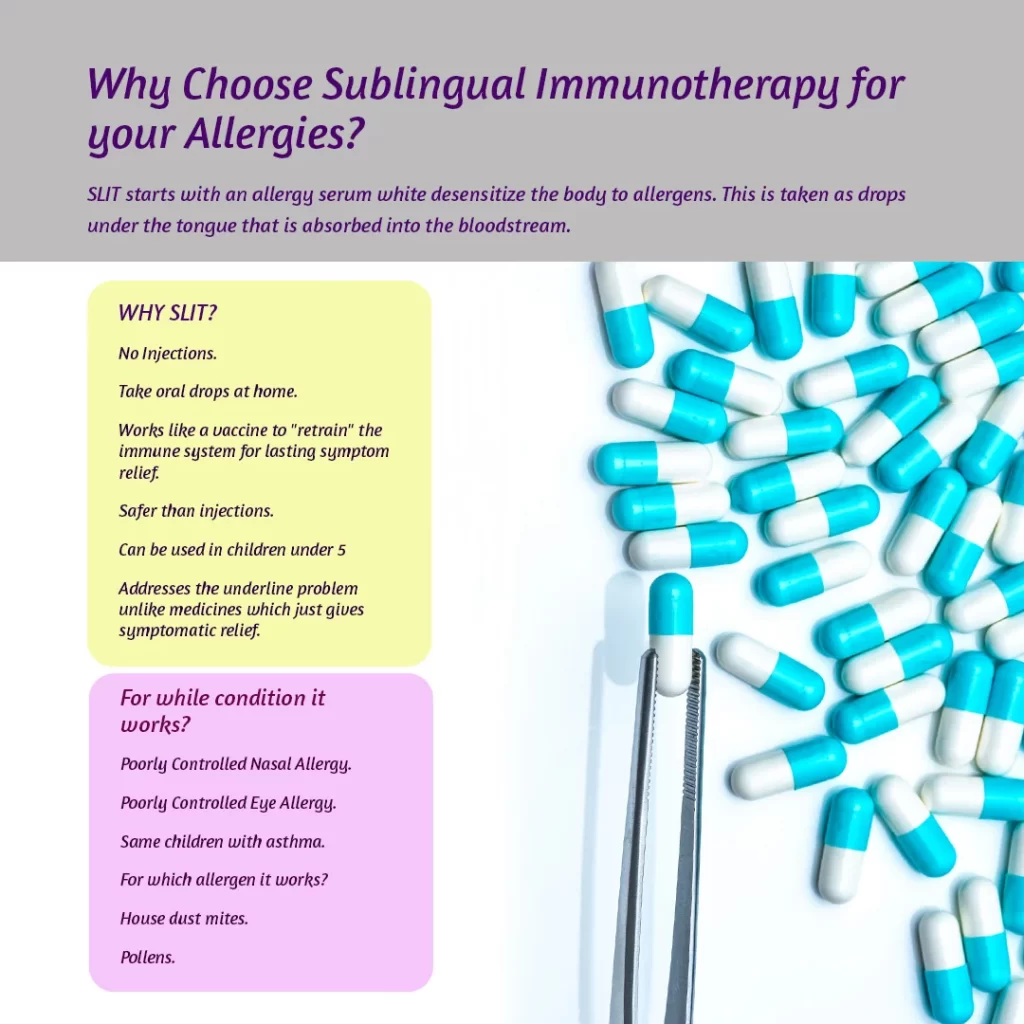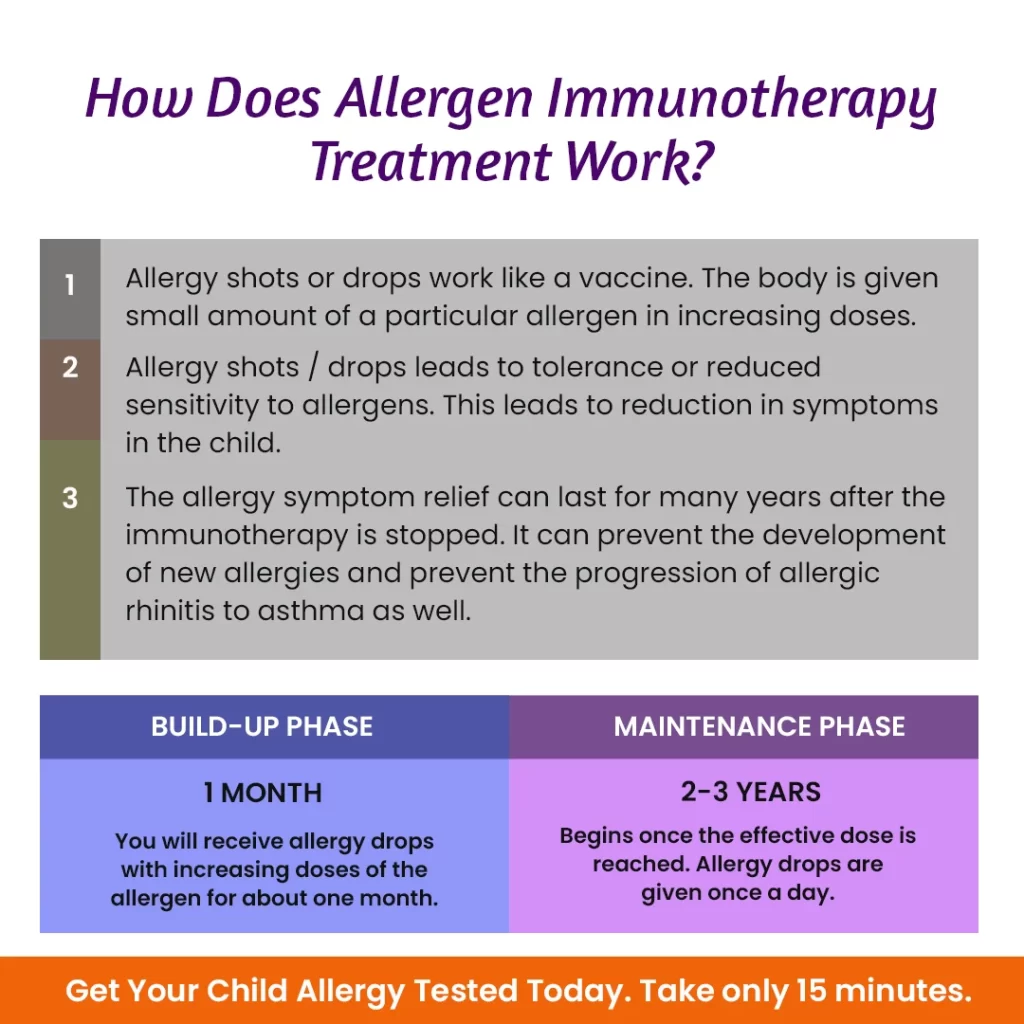Immunotherapy
Allergen Immunotherapy for Children:
Allergen immunotherapy, or desensitization, is a treatment for allergies such as nasal allergies, asthma, food allergies, and severe reactions to insect bites. This treatment involves giving gradually increasing doses of the allergen, allowing the immune system to become less reactive. This can reduce symptom severity, lower the need for medications, and, in some cases, even cure the allergy.
How to Determine What Your Child is Allergic To:
Before starting immunotherapy, it’s essential to identify the allergens causing your child’s symptoms. This can be done with:
- Skin Prick Test (SPT): A small drop of allergen is applied to the skin, and a reaction indicates sensitivity.
- Blood Allergy Tests (Serum Specific IgE): A blood test to detect specific allergic reactions using ImmunoCap technology.

Common Allergens:
Allergens can come from environmental sources (aeroallergens) or foods.
- Aeroallergens:
- Indoor: Dust mites, molds/fungi, cockroach, cat, and dog dander.
- Outdoor: Pollens from trees, weeds, and grasses.
- Food Allergens:
- Common food allergens include eggs, milk, peanuts, tree nuts, fish, shellfish, wheat, and soy.
- Aeroallergens:
Forms of Immunotherapy:
Immunotherapy can be administered in two primary ways:
- Subcutaneous Immunotherapy (SCIT): Also known as “allergy shots,” SCIT involves giving small, gradually increasing doses of the allergen via injection under the skin.
- Sublingual Immunotherapy (SLIT): This method involves drops or tablets placed under the tongue, increasing tolerance to the allergen without injections.
Book an Appointment

